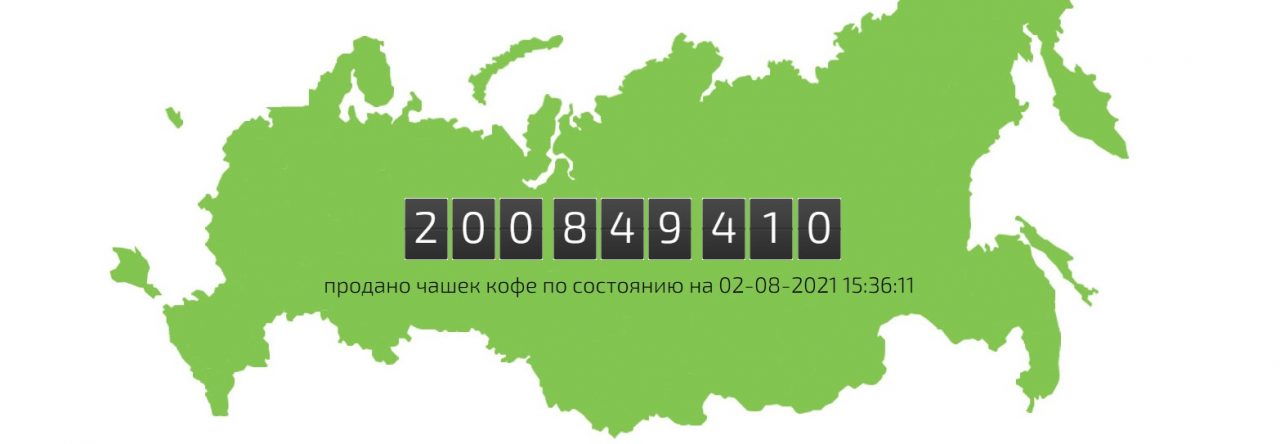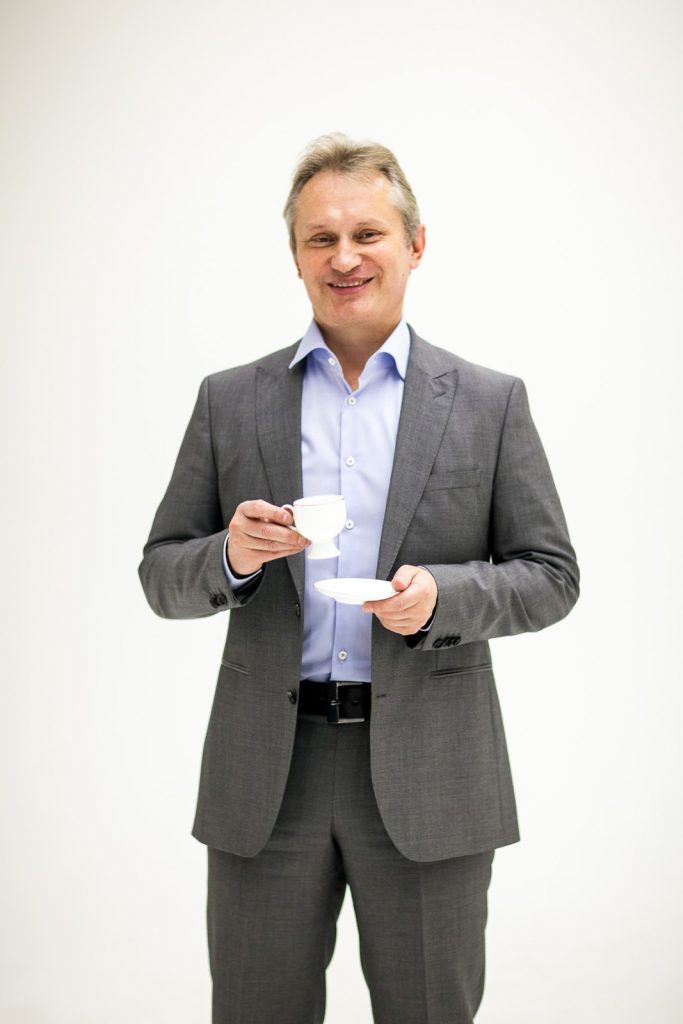
The COVID-19 pandemic has had a powerful impact on all areas of public life, including catering and retail. The threat of the spread of the coronavirus and the associated restrictions have made adjustments to consumer behavior and daily habits. Thus, according to the research agency Nielsen, two-thirds of consumers among others have become much more likely to wash their hands and maintain social distance.
It became obvious that the world needs new technologies in the areas of retail, services and catering that will help to systematically fight against COVID-19. Such technologies may be described as “contactless”, “remote” and “antivirus”. They have become top-priority technologies.
All these technologies can be divided into three groups:
- Technologies aimed at reducing contacts between consumers (clients) and working personnel.
- Technologies for protecting the surface of goods from viruses.
- Surface disinfection systems that destroy existing viruses and microbes.
Many of my innovations have already been tested in the past years, but the pandemic has accelerated their adoption to customers and the beginning of commercial operations. By the beginning of 2020, within the perimeter of my businesses, there were a number of successful IT solutions that were already used by companies in 10 countries – large food retailers, oil companies, catering and fast-food companies. For example, the BMS Cloud platform began to be used by the largest companies from the North America to the UAE long before the pandemic, but the pandemic was an important catalyst that showed the particular importance of the technologies that we developed, because they became effective fighters against the spread of COVID-19.
However, there were also technologies that were in the stage of unreadiness of the market for their large-scale application. They were developed by my IT company to a certain high degree of readiness, tested, but were not put into commercial operation. Some of the technological developments were “lying on the shelf” for very obvious reasons – justifying their necessity and benefit would take more resources than the commercial profit from selling them. Therefore, the developments were postponed in stand-by mode and were waiting in the wings.
But at the beginning of 2020, events took place that turned our lives upside down. And oddly enough, some of the technologies put off for the future suddenly became incredibly valuable in terms of the systemic fight against the Covid-19 pandemic.
IoT platform for managing coffee businesses “BMS Coffee Control”
The platform, which proved itself long before covid times, helps companies not only reduce the cost of servicing of coffee equipment, but also more than 3 times reduce the number of visits of service engineers to retail facilities. In 2020, the usefulness of the platform in a pandemic was even more evident. As a rule, coffee equipment requires a visit by a service engineer almost every month, service visits occur during business hours or before the opening of let’s say a cafe. At the same time, it is clear that no matter what precautions are taken by the service personnel or the cafe staff, additional contact of people is inevitable. A service mechanic can become a carrier of the virus, because in one working day he travels around several points. It is obvious that the 70% reduction in the number of contacts, which we are achieving at 4 thousand points of sale of customers connected to BMS Coffee Control, makes a significant contribution to the general front of the fight against the pandemic. Remote monitoring of the condition of coffee machines using BMS technology allows you to reduce contacts and prevent the possible spread of COVID-19.
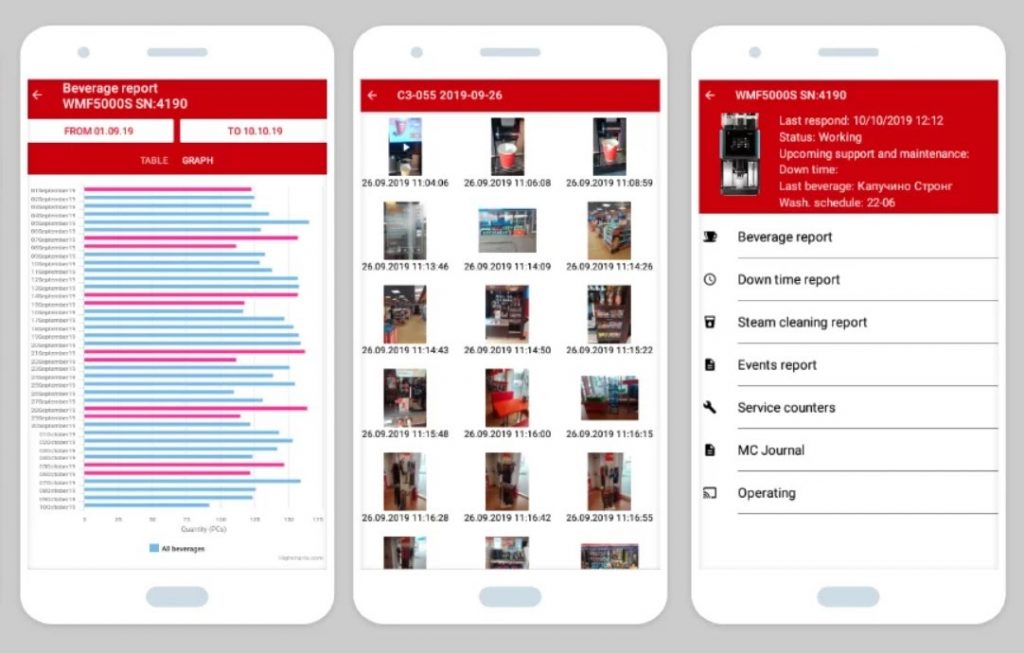
Creation of networks of automated self-service coffee points
In addition to the mentioned above, the BMS Coffee Control platform allows the development of such a format of catering establishments as automated self-service coffee corners. When you buy coffee yourself, you are not in contact with baristas, waiters and other employees who previously met with a huge number of people and may be virus carriers. You prepare a drink at the touch of a button on the coffee machine or using your smartphone without even a single touch of the coffee machine. Thus, you not only get high-quality coffee in a convenient way without queues and tedious waiting, but also reduce the likelihood of the spread of coronavirus.
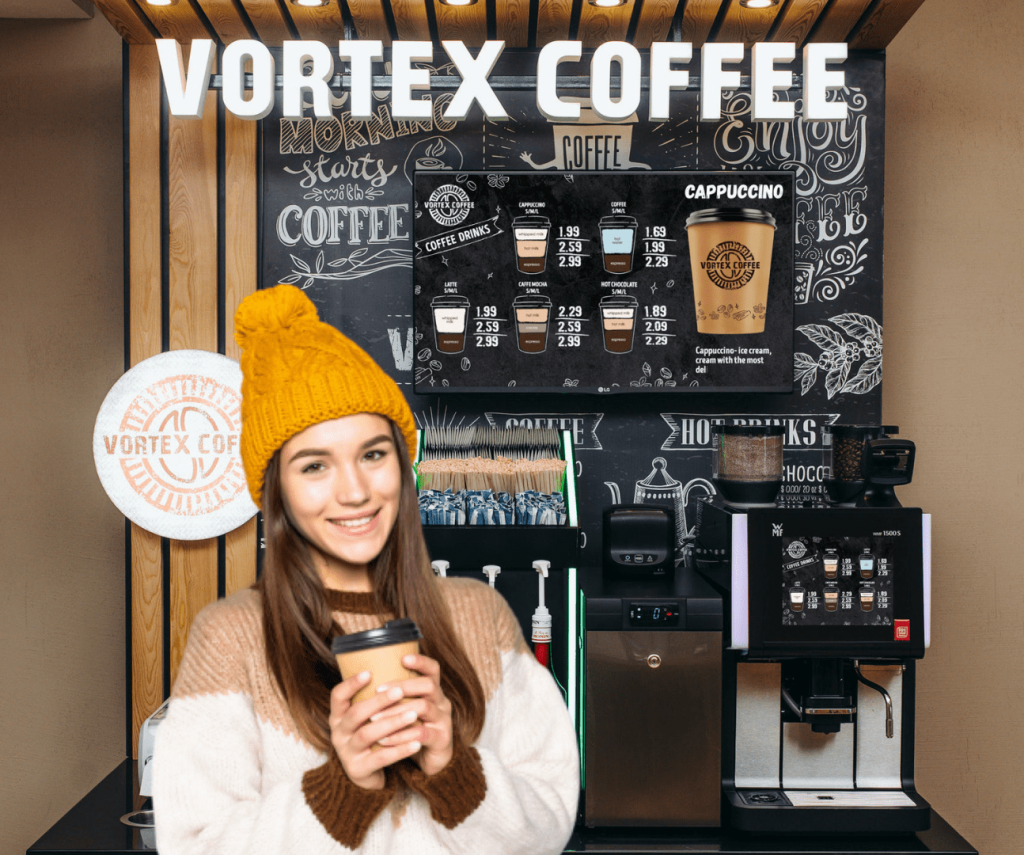
Mobile application “I’m a barista” for remote coffee ordering with control of coffee strength and milk quantity
Another technology that is certainly useful in a difficult epidemiological situation is the “I’m a barista” system. The solution allows customers of self-service coffee points to order and adjust the taste of coffee using their smartphone. Even before the onset of the COVID-19 era, the technology began to be used by more than 1000 convenience stores of Vkusville, Gazpromneft and other companies. The pandemic has opened up additional benefits. Now you can order coffee at a self-service coffee point without touching the coffee machine at all, but using only your own phone. It is enough to point it at the QR code and then all the actions for preparing the drink are performed only on the phone. As a result, you make take-away coffee without unnecessary contacts and touching potentially unsafe surfaces.
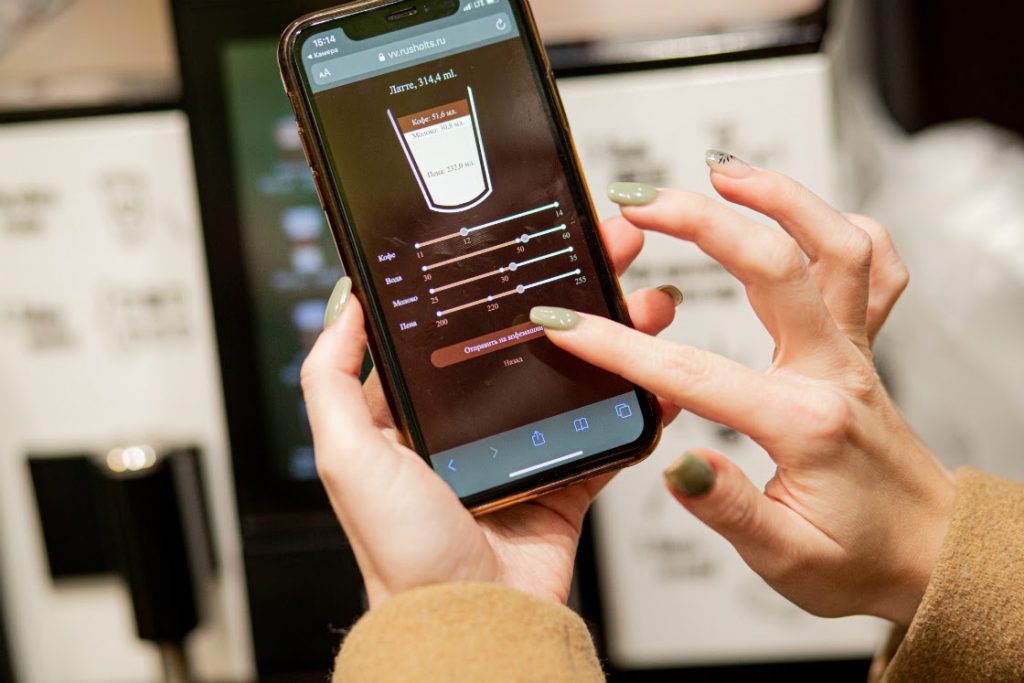
The UV-treated automated coffee cup dispenser in a weatherproof enclosure
It is a technology that has been gathering dust on the shelf only because it was a norm to store paper cups for coffee to go in the open space. For catering outlets, it was the norm that cups lay in a stack on a shelf and all visitors could freely touch them. Even those who will not drink coffee. That time the degree of the possible threat was not clear, but COVID-19 changed the situation. The highest demands are now being placed on the safe storage and dispensing of disposable tableware. Our dispenser dispenses cups automatically, one at a time. All cups are stored in a protected case, where germs and viruses can not get, for example, when visitors sneeze. Moreover, each cup is automatically disinfected before being dispensed using built-in ultraviolet lamps of the same type, which disinfect the air in medical institutions.
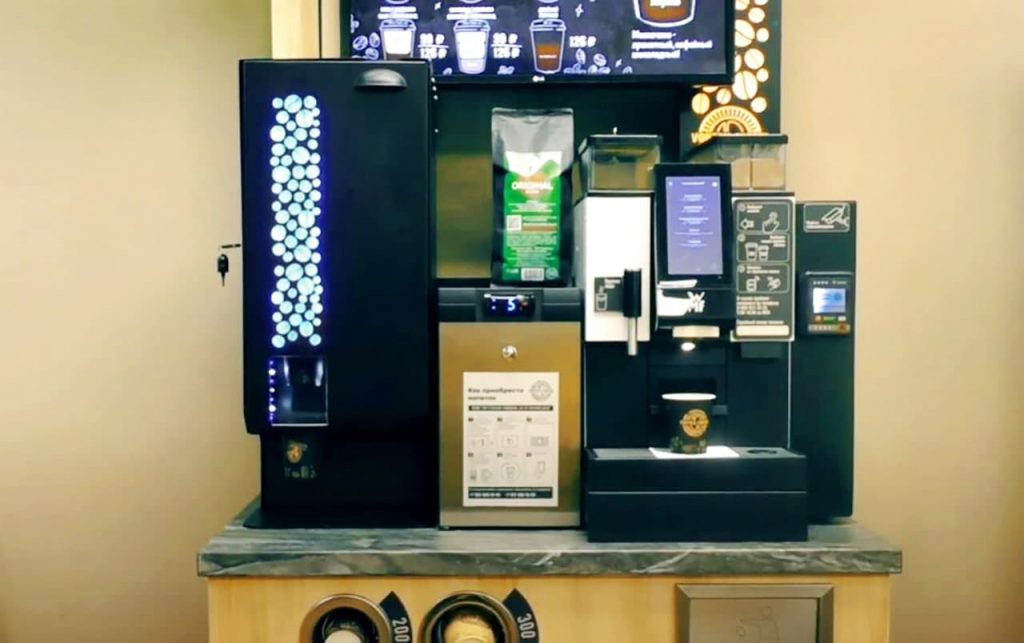
Technologies of contactless payments for coffee on professional automatic coffee machines
My company was the first in the history of Canada to introduce contactless payments on professional WMF coffee machines. The WMF company is the world leader in the production of automatic coffee machines with the largest share of the world market, however, the peculiarities of Canada’s payment systems and WMF software did not allow solving the problem of connecting payment terminals to coffee machines without updating the software. I created a working group that unites NAYAX and other service companies to implement a project for connecting payment terminals to WMF coffee machines. Several months of hard work and testing allowed us to solve the problem and bring the Canadian market closer to the large-scale introduction of self-service coffee corners.
Many technologies developed within the BMS Cloud platform have shown their effectiveness and profitability for business long before the coronavirus pandemic. But in the current times, they have demonstrated even greater market demand, and now I am putting great emphasis on developing technologies for public catering and retail that will further reduce the likelihood of the spread of COVID-19.
Despite self-isolation and social distancing, people, as in the past, want and will go to shops and cafes, buy their favorite drinks and eat deliciously. “Digitalization of business” and the introduction of safe technologies, in my opinion, is one of the few ways to comply with the new pandemic “rules of the game”.
